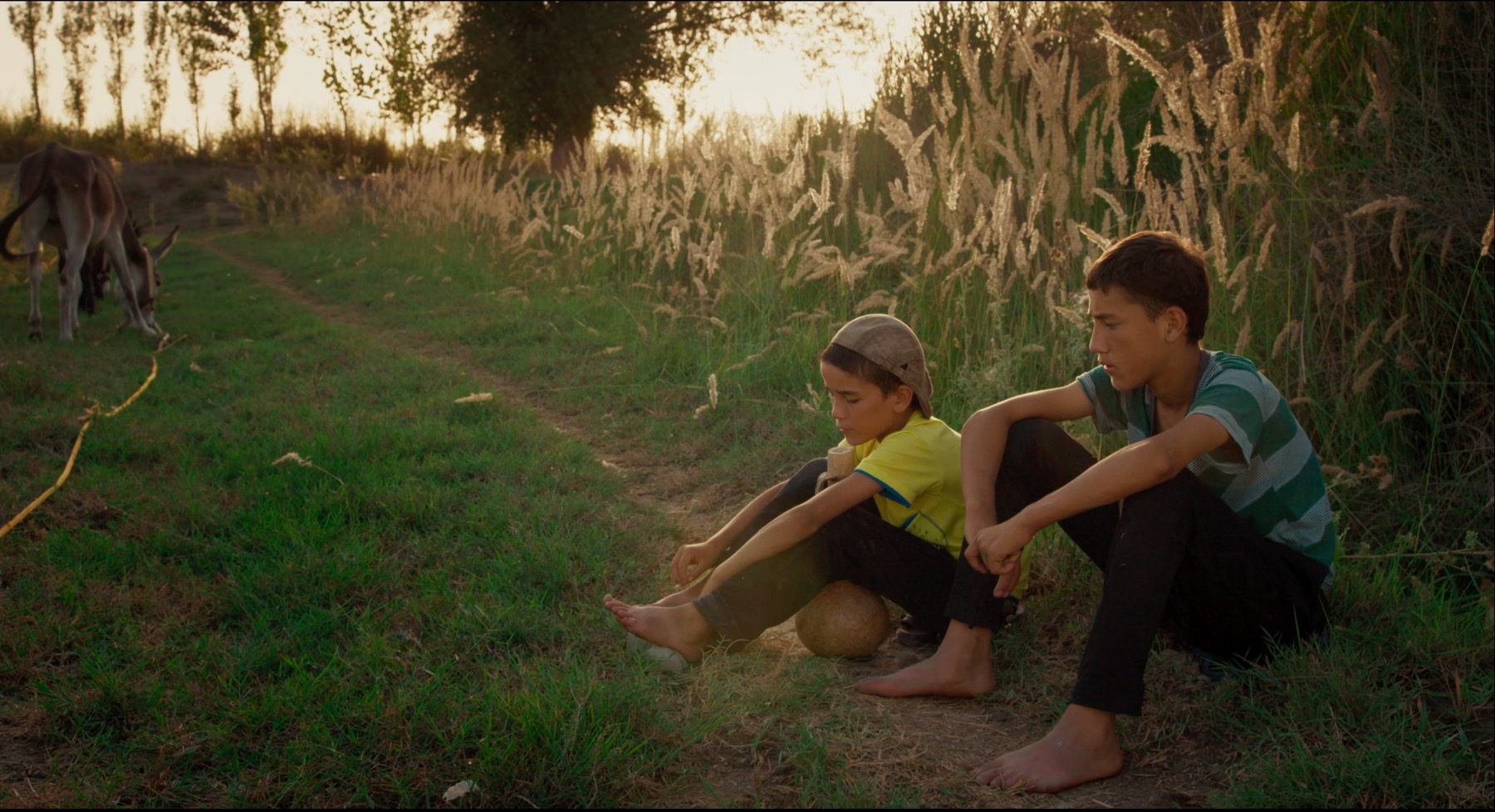‘A First Farewell’ bids goodbye to a Uyghur childhood
Dedicated to her hometown of Shaya, Xinjiang, director Wang Lina's debut uses non-professional actors to tell a poetic story about three young Uyghur children and their experiences with poverty, Sinicization, and a way of life vanishing before their eyes.

Surprisingly, despite its remoteness, moviegoers have caught more looks of Xinjiang than they might know. The American drama The Kite Runner passed the city of Kashgar off as Afghanistan, while blockbusters like Crouching Tiger, Hidden Dragon (卧虎藏龙 wò hǔ cáng lóng), Pegasus (飞驰人生 fēichí rénshēng), and (most controversially) Disney’s Mulan have made use of the region’s breathtaking landscape.
Even though Xinjiang has frequently been a backdrop on screens, we rarely see representations of the actual Uyghurs who call it home. There are directors like Tahir H. Izgil, a poet in exile who’s made excellent documentaries and films on Uyghur themes, but the world of Uyghur-centered cinema has generally been dominated for decades by the local studio Tianshan, which makes light-hearted, thoughtless, sing-and-dance films about national unity.
Wáng Lìnà’s 王丽娜 A First Farewell (第一次的离别 dì yī cì de líbié), which began playing in select American theaters last Friday, is not that kind of movie.
Dedicated to her hometown of Shaya, Xinjiang, Wang’s debut has made a great impression at film festivals, and is now being distributed by Cheng Cheng Films virtually. Movies about Uyghurs tend not to leave China (if even Xinjiang), so it’s definitely exciting when something like A First Farewell is brought to wider audiences. The film is short but strong, using non-professional actors to tell a poetic story about three young Uyghur children and their experiences with poverty, Sinicization, and a way of life vanishing before their eyes.
Isa (Isa Yasan) is the first child we get to know. As a boy in elementary school, he already has some massive responsibilities. He helps his family with farm work, and is also tasked with watching his mother, a woman who’s too sick to leave the house or do anything by herself. Isa takes solace in playing with a lamb, lent to him by his friend Kalbinur (Kalbinur Rahmati) and her little brother Alinaz (Alinaz Rahmati). While older children like Isa’s brother are anxious to leave the village, Isa and his pals enjoy the poplar trees and the farm animals they’ve always known. Through a kid’s eyes, their village is fun and charming. The harshness of their circumstances only gradually dawns on them, leading to a series of farewells for Isa.
One such parting is due to the children’s schooling. The older folks emphasize the importance of education, and Kalbinur and Isa dream about studying hard so they can get good jobs and help their families. It’s not easy studying with their burdens, however, and none of the trio do so well in school. Learning Mandarin is especially difficult for them. After Kalbinur fails a Mandarin exam, her mother is shamed in the presence of the other students and parents. Kalbinur’s mom is afraid that growing up in the village and speaking Uyghur has made her son and daughter “dumb.” Whatever her own feelings, Kalbinur’s mom wants only what appears to be best for her children.
Given the horrors in Xinjiang right now, some viewers might be disappointed by its indirectness, but it’s only natural that a movie aiming to be approved by Chinese censors has to put what it’s saying softly. Talking about a form of oppression as explicit as internment camps is out of the question in China. Although the film is careful, there’s a strong theme about the Sinicization of Uyghur culture. Several adults push the kids to speak Mandarin, promoting the notion that it’s better and more sophisticated. Nowhere is this attitude stressed more than at the kids’ school, where they study classical Chinese poets but learn nothing about their own culture or history. The teachers reigning over these classes are authoritarian and indifferent. Step out of line, or don’t meet expectations, and you’re berated like poor Kalbinur and her mother.
As a tale of a vanishing world, threatened by politics and modernity, A First Farewell could not feel as legitimate as it does without the presence of its nonprofessional cast. Director Wang spent a year documenting the children, making A First Farewell an intriguing mix of fact, fiction, and improvisation. During one such scene, the filmmakers engineered Kalbinur to show up late to class. She’s brought to tears by her scolding teacher, a reaction all the more heartbreaking because Kalbinur wasn’t in on the plot. Isa and his family and friends are so authentic and lively that I had trouble figuring out what was scripted and what was real. Wherever the camera takes us, whether we see laughter, bickering, or the pampering of Isa’s beloved lamb, the effect of these actors is so strong that it seems like we’re continually eavesdropping on a life as it’s truly lived.
Along with the acting, the film’s visuals are also sure to strike viewers. The characters stroll through thick fields, vivid forests, and landscapes full of animals, images at odds with the desolate, endless desert that we see in the action films that use Xinjiang as a backdrop. A First Farewell is a powerful debut. It brings to mind the work of Abbas Kiarostami, the Iranian director renowned for the blending of fiction and non-fiction in his films about children, the countryside, and complex social and political issues. It’s rare to get a glimpse of the real Xinjiang, let alone an insight as beautiful and perceptive as A First Farewell.






